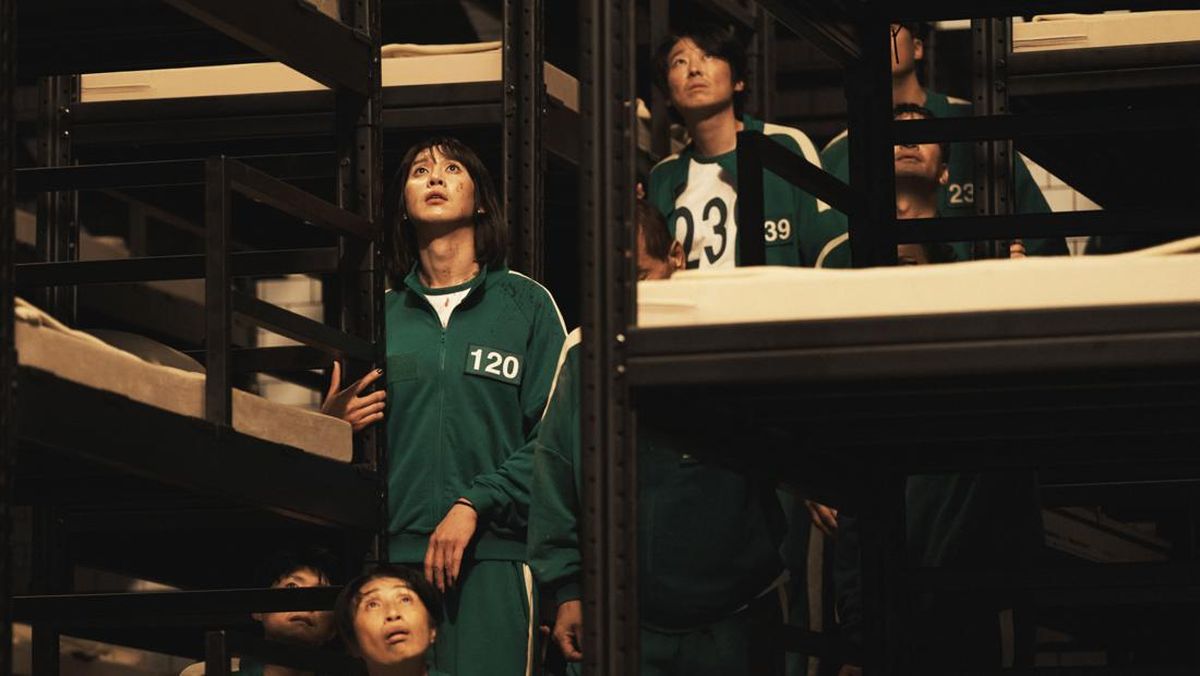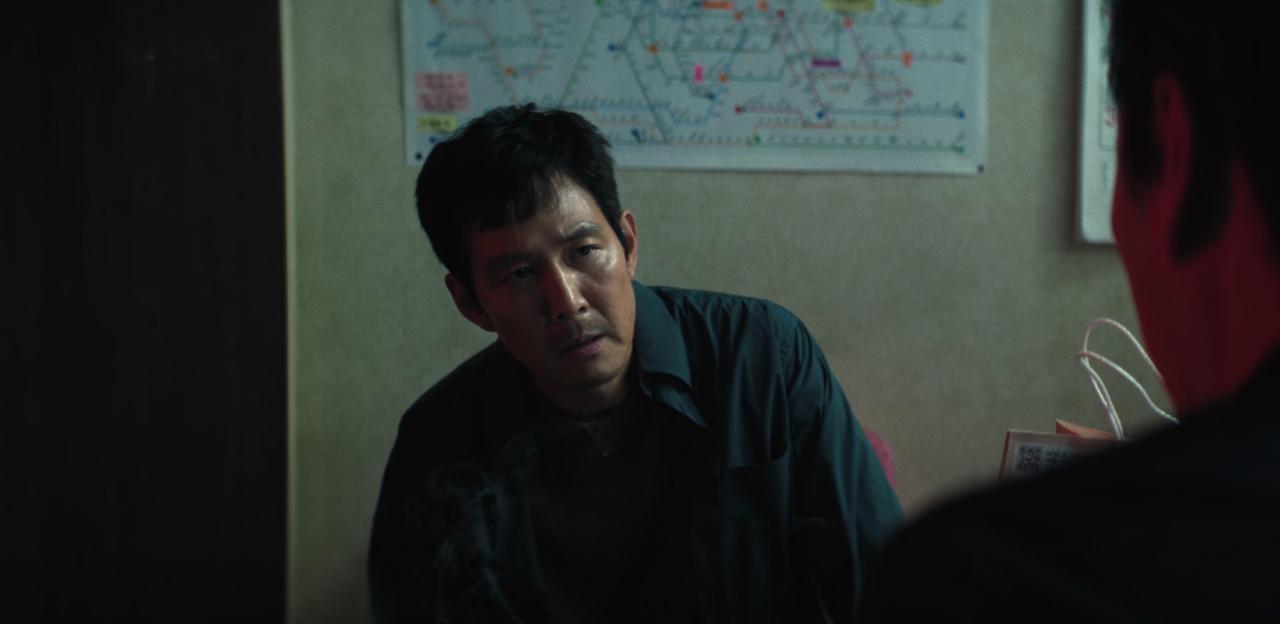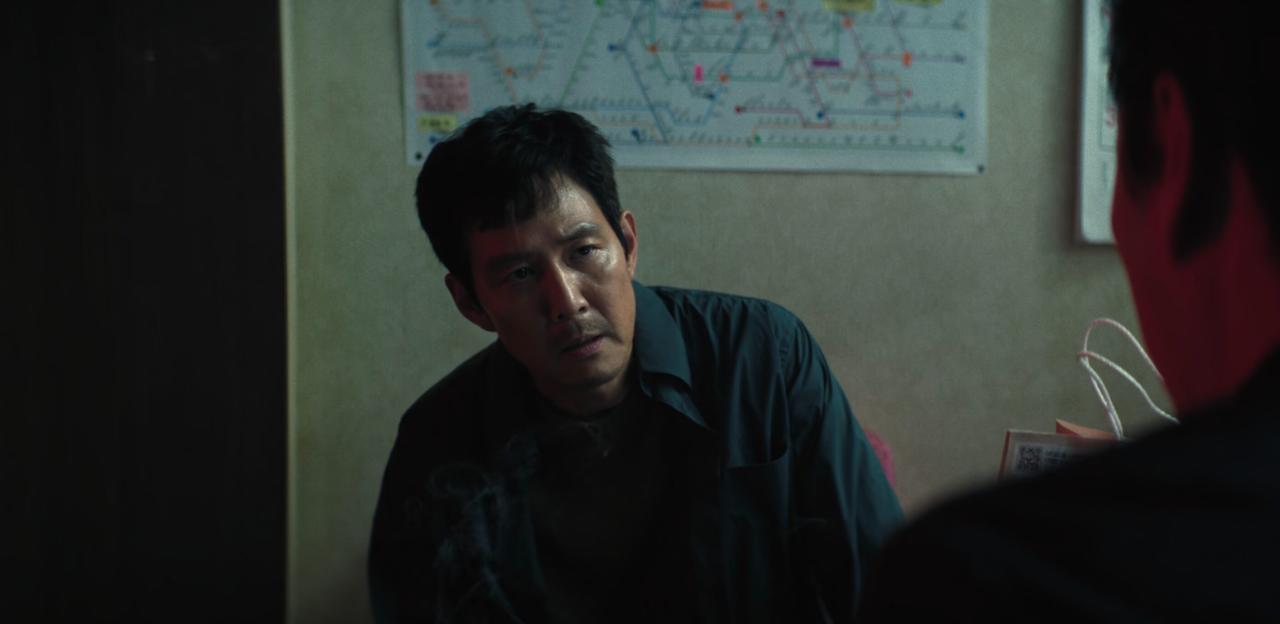Squid Game Histoire Vraie? The wildly popular Netflix series wasn’t just a thrilling watch; it sparked global conversations about real-world issues. This exploration dives into the unsettling parallels between the show’s brutal games and the harsh realities of South Korean society, examining debt, competition, and the pressures that drive people to desperate measures. We’ll uncover the truth behind the inspiration, separating fact from fiction and exploring the show’s lasting impact.
From the crushing weight of debt to the cutthroat competition for success, “Squid Game” reflects a disturbingly accurate picture of societal struggles in South Korea. We’ll analyze how the show’s games symbolize these pressures, comparing them to real-life experiences and exploring the cultural context that gave rise to such a captivating and disturbing narrative. We’ll also consider the show’s global impact and its ability to spark vital conversations about socioeconomic inequality around the world.
The Socioeconomic Realities Behind “Squid Game”

The global phenomenon that is “Squid Game” captivated audiences with its high-stakes games and brutal depiction of desperation. However, the show’s shocking premise is rooted in stark socioeconomic realities prevalent in South Korea, particularly concerning debt, social hierarchy, and the intense pressure to succeed.
The Reality of Debt in South Korea
South Korea boasts a highly competitive and demanding society. This, coupled with factors like high living costs, educational expenses, and the pressure to maintain a certain lifestyle, contributes significantly to the nation’s high personal debt levels. Many individuals find themselves trapped in a cycle of debt, struggling to meet basic needs and facing the threat of financial ruin.
Examples mirroring “Squid Game’s” financial struggles are abundant. Individuals burdened by student loan debt, medical bills, or business failures often find themselves with limited options. The pressure to provide for their families and maintain social standing pushes many to take on increasingly risky loans, leading to a downward spiral. This relentless pressure creates a sense of desperation that closely resembles the motivations of the players in the show.
Debt carries a significant social stigma in South Korea. Individuals facing financial hardship often feel shame and reluctance to seek help, fearing social judgment and ostracism. This stigma reinforces the isolation and desperation depicted in the series, making it harder for those struggling financially to break free from their predicament.
“Squid Game” doesn’t exaggerate the desperation; it reflects it. While the games are fictional, the underlying financial pressures and the societal stigma attached to debt are very real for many South Koreans. The show’s impact lies in its ability to bring these often-overlooked realities into the global spotlight.
Korean Social Hierarchy and Competition
South Korea’s highly competitive social structure plays a crucial role in shaping individual experiences. The emphasis on academic achievement, prestigious jobs, and material success creates immense pressure on individuals to excel, often at the expense of their mental and emotional well-being.
The fierce competition for jobs, particularly in high-demand sectors, is a common occurrence. Aspirants often face extremely challenging recruitment processes, with many applicants vying for limited positions. This pressure extends beyond employment, permeating all aspects of life, from education to social standing.
The psychological toll of this constant competition is substantial. The pressure to succeed can lead to anxiety, depression, and even suicidal thoughts. The relentless pursuit of success, often at the expense of personal well-being, creates a breeding ground for stress and mental health issues. This pressure is strikingly reflected in the desperation and willingness to risk everything seen in “Squid Game’s” participants.
The games in “Squid Game” can be viewed as metaphors for the cutthroat competition in South Korean society. Each game represents a different hurdle in the relentless pursuit of success, highlighting the high stakes and the willingness of individuals to sacrifice everything in the face of immense pressure.
So you’re wondering about “squid game histoire vraie”? While the show’s fictional, its themes of desperation and inequality hit hard. To understand the opulent side of the games’ power dynamic, check out the details on vip 3 squid game , which explores the high-roller element. Seeing how the VIPs operate sheds light on the brutal reality fueling the games in the “squid game histoire vraie” debate.
The Games: Inspired by Reality or Pure Fiction?

While the deadly games in “Squid Game” are purely fictional, their design draws inspiration from traditional Korean children’s games. This juxtaposition of familiar childhood games with life-or-death consequences enhances the show’s impact and underscores the desperation of the participants.
The symbolism embedded within the games is significant. The seemingly simple games represent complex societal issues like inequality, exploitation, and the struggle for survival. The choice of games reflects the creators’ intention to highlight the desperation that can arise from extreme socioeconomic pressures.
| Squid Game Game | Similar Korean Childhood Game | Symbolism | Societal Reflection |
|---|---|---|---|
| Red Light, Green Light | 무궁화 꽃이 피었습니다 (Mugunghwa kkochi pieotseumnida) | Obedience, conformity, the fear of punishment | Blind adherence to societal rules and expectations |
| Honeycomb | 달고나 (Dalgona) | Precision, risk-taking, the pressure to succeed | The challenges of navigating a highly competitive society |
| Tug-of-War | 줄다리기 (Juldari-gi) | Teamwork, betrayal, the struggle for survival | The importance of alliances and the ruthless nature of competition |
| Marbles | 구슬치기 (Guseulchigi) | Trust, manipulation, the vulnerability of the weak | Exploitation and the unequal distribution of resources |
The games ultimately showcase the desperation and willingness to risk everything for a chance at survival, mirroring the extreme measures some individuals take in real-life situations marked by overwhelming debt and social pressure.
The “Squid Game” Phenomenon and its Global Impact

“Squid Game” transcended its initial release, becoming a global cultural phenomenon. Its widespread popularity sparked crucial conversations about socioeconomic inequality on a global scale, resonating with viewers from diverse backgrounds who related to the themes of desperation and the struggle for survival.
The show’s influence is evident in its impact on popular culture and media. Its imagery, characters, and themes have been widely referenced in various forms of media, from social media trends to merchandise. The show has also inspired discussions about social justice, economic inequality, and the human cost of societal pressures.
In a hypothetical scenario, the themes of “Squid Game” could manifest differently in other cultural contexts. For example, in a society with deeply entrenched caste systems, the games might reflect the struggles of marginalized communities fighting for upward mobility. In regions grappling with extreme poverty, the games could symbolize the desperation of individuals forced to make impossible choices for survival.
The core themes of desperation and the fight for survival, however, would remain universally relatable.
Visual Representation: The Set Design and Costume, Squid game histoire vraie
The visual elements of “Squid Game” are integral to its impact. The stark contrast between the vibrant, childlike games and the grim, dystopian setting creates a jarring effect that underscores the show’s themes. The color palette is carefully chosen, with bright primary colors used in the games contrasting sharply with the muted tones of the players’ uniforms and the overall environment.
So you’re wondering about “squid game histoire vraie,” right? Many people are curious if the brutal games shown in the series are based on real-life events. To find out more about the truth behind the show’s inspiration, check out this link for information on “squid game histoire vraie”: squid game histoire vraie. Understanding the origins of the show helps you appreciate the storytelling even more, so dive into the “squid game histoire vraie” debate!
The symbolism of the color palette is profound. The bright colors of the games represent a deceptive sense of innocence and playfulness, while the muted tones of the environment reflect the grim reality of the situation. The players’ green tracksuits represent uniformity and dehumanization, while the VIPs’ opulent attire highlights the stark contrast between the rich and the poor.
The scene where the players are first introduced to the games, standing in a vast, brightly colored courtyard, is particularly striking. The vibrant colors of the games are juxtaposed with the anxious faces of the players, creating a powerful visual representation of the show’s central themes. The vastness of the space underscores the feeling of isolation and vulnerability, emphasizing the players’ precarious position.
The visual style of “Squid Game” shares similarities with other dystopian and survival-themed works. The use of stark contrasts, muted colors, and a sense of oppressive atmosphere evokes a similar feeling to films like “Battle Royale” or “The Hunger Games,” highlighting the themes of desperation, survival, and the dehumanizing effects of extreme competition.
Final Summary
Ultimately, “Squid Game Histoire Vraie” reveals a complex interplay between fiction and reality. While the show’s games are fictional, the desperation and societal pressures they represent are tragically real for many. The show’s enduring popularity highlights a global need to address issues of economic inequality and the psychological toll of extreme competition. By understanding the real-world inspirations behind “Squid Game,” we can gain a deeper understanding of the struggles faced by millions and work towards creating a more equitable and just society.
FAQ Insights: Squid Game Histoire Vraie
Was “Squid Game” based on a true story?
So, you’re wondering about “Squid Game histoire vraie”? While the show’s fictional, the harsh realities of debt and societal pressure it depicts are sadly relatable. Think about the sheer scale and precision needed for something like the shanghai dragon drone show , a stunning display of coordinated technology. That level of control and risk mirrors the deadly games in Squid Game, highlighting how meticulously crafted systems, whether for entertainment or exploitation, can have devastating consequences.
Ultimately, “Squid Game histoire vraie” isn’t about a single true story, but rather a reflection of anxieties felt worldwide.
No, “Squid Game” is not based on a single true story. However, it draws inspiration from real-world issues in South Korea, such as high levels of debt and intense social competition, making its themes resonate with audiences globally.
Are the games in “Squid Game” based on real Korean games?
Some of the games share similarities with traditional Korean children’s games, but they’ve been adapted and amplified for the show’s dramatic effect. The core concept of high-stakes survival games is fictional.
How accurate is the portrayal of debt in South Korea in “Squid Game”?
The show highlights the significant problem of personal debt in South Korea, though the extreme situations depicted are exaggerated for dramatic purposes. The underlying societal pressures and the stigma associated with debt are, however, quite realistic.
